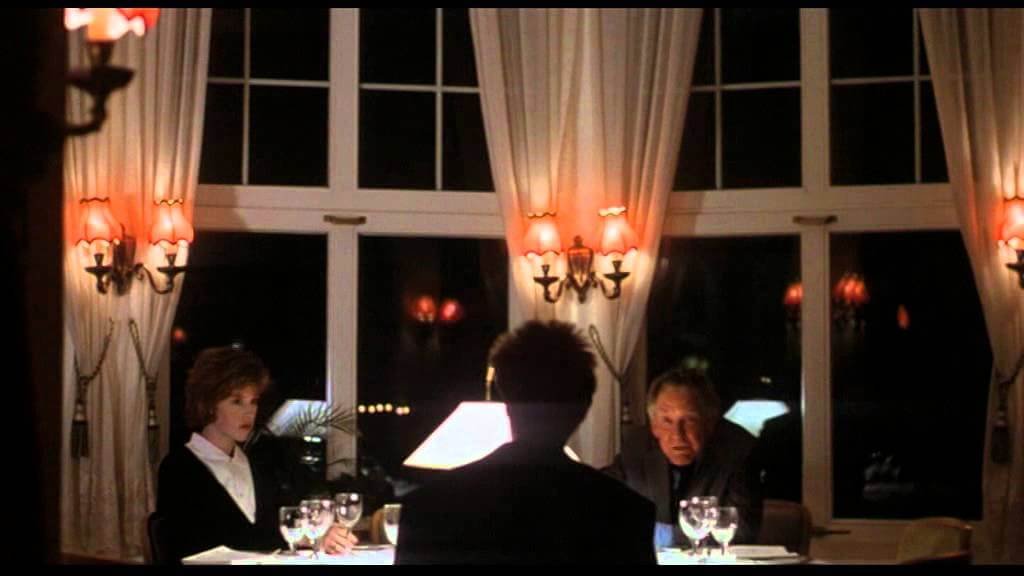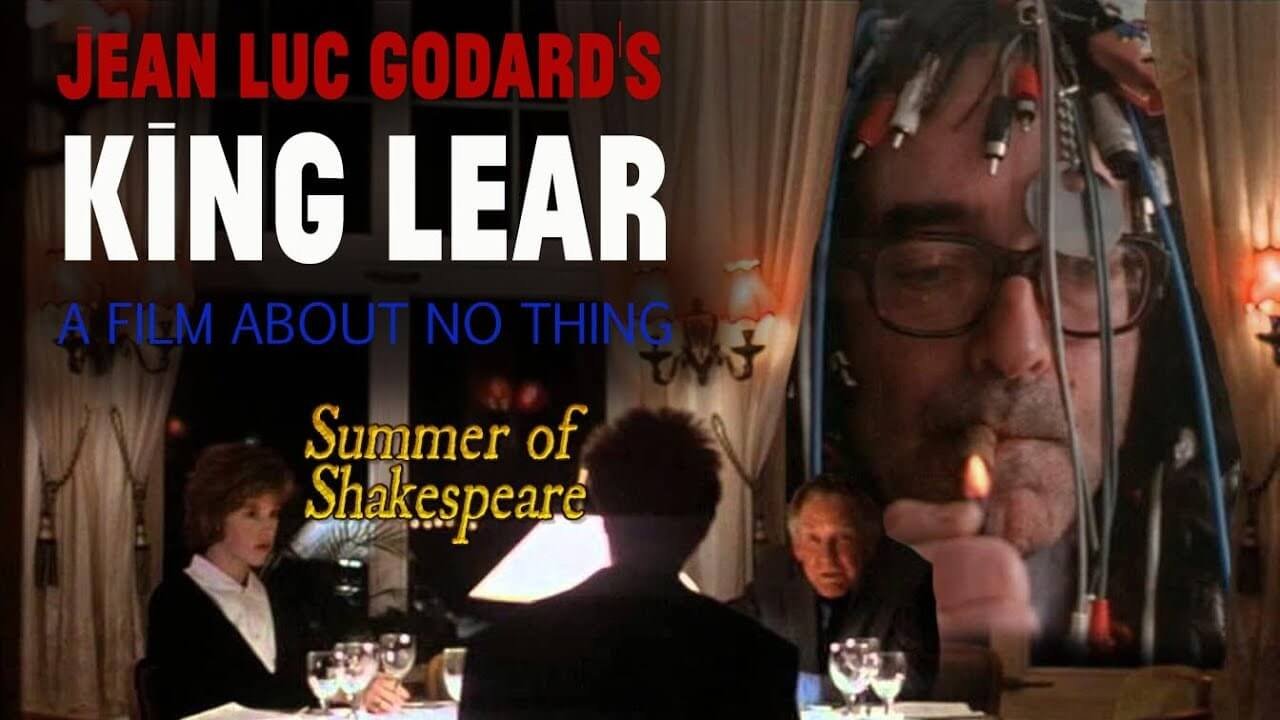You hardly know yourself. This person with whom you spend every night and day. This person who can surprise you more than anyone in so many unexpected ways. With actions you have never thought were possible. The feeling is pleasant. And frightening.
However, you are not reluctant to think that you know more about the others than they know about themselves. Although, sometimes you do accept that you do not know yourself so well. You believe to be able to righteously and critically evaluate their work. Or thought. As if you are in the middle of this incredible tectonic process of creation, as its very word. Even before it flew out. Hurting someone. Or appraising. Showing its power, because of which its creator often had to justify himself.
What is the best way to approach the work of your teacher? His or her life choices? The moments when they abandon you with their actions. Or statements. Or, when you abandon them. And, how do they approach themselves? Is it with an autobiography in a form of self-defence?[1] How to be able to critically juggle with conclusions on the one who inspired you? The one whose work you used for the sake of your career. Without whom nobody would probably ever hear about you in the first place. Because, that is the point. To take their place. At least by means of a critique. To finally find your own position. And viewpoint. About the one you probably no longer understand.[2]
At which point does the common language disappear? At which point this understanding seizes to be? Is it when you, like the couple in Godard’s film Adieu au langage (2015), no longer speak the same language? When does this happen? And like the double meaning of the title, it is not merely an adieu but only a greeting, as Godard points out the case of Vaud, the French-speaking part of Switzerland. However, this goodbye is also a farewell to the former manner of expression. To approach the other one. With a constant motto: the absence of message.
The teacher is here so that one day, if you happen to chose so, you can become one.[3] They exist to open doors to you.[4] As if that is not their intention. As if they do it by mistake.[5] Successors sometimes shut them with their own narrow-mindedness. Gilles Deleuze reminds us that on one occasion Félix Guattari suggested at a psychoanalytical congress that analysands should be paid as well as analysts… there’s the analyst’s work of listening and shifting, but the analysand’s unconscious is at work too. … He establishes similarities with Godard’s statement: why not pay the people who watch television, instead of making them pay, because they are engaged in real work…?[6]
Many find that Adieu au langage is Godard’s most exciting film after King Lear from 1987.[7] Abracadabra Mao Zedong Che Guevara, an incantation from his King Lear, with the connotation of magical words which historically also have healing power, imposes a question of how to analyse a language of magic? Having in mind that psychologically it does not surpass the subconscious, it also offers a possibility to remain outside of the codes already established. Rejection of all linguistic conventions as well as those that belong to film. A possible way out in the choice that the magical power of words also becomes a healing power. According to anti-psychiatry, this word has lost this power due to excessive use.[8] Isn’t this abstruseness of meaning or acknowledgement of incomprehension the most important lesson? Yet, everyone knows who was the first teacher of this. Godard’s language, which is always a step forward to the subsequent, offers the healing clarification by means of magical abracadabra.
Godard’s King Lear was made in 1987, a year after the accident in Chernobyl. Norman Mailer, who was the author of the script, starts his story with a contract dated on 16 April 1986. A few days before the disaster.
Critics like to highlight the contract signed on a napkin by Jean-Luc Godard and Menahhem Golan, the former director of Cannon Films, as well as the alleged Godard’s statement that he had never read the eponymous Shakespeare’s play. This is contradictory to the spectator’s focus on Godard’s exciting and witty wordplays and playful linguistic intertwinement of both works.[9] His exquisite linguistic practice; not the langue, but the language.

Shakespeare’s King Lear ends with Cordelia in his arms. The sequel can be found in Godard’s film, and intricately interlaced themes that preoccupy him. Following the power, after the disaster, instead of language.[10] The other part of the film’s title points out to that, i.e. Fear and Loathing.
A descendant, William Shakespeare Jr. the Fifth (Peter Sellars), tries to renew the play in the preserved part of the world in Nyon, Switzerland.[11] In Denmark he has re-discovered to be or not to be, and France is the next country that calls him.[12] In the search for his ancestor’s lost words, everything but culture has regenerated after the disaster, he is inspired by Shakespearian and Learian dialogue between Don Lear, the mobster, and his daughter Cordelia (Burgess Meredith & Molly Ringwald) sitting at the table nearby.[13] Stanley Cavell points out that in case of Godard’s characters (after Breathless) there is no problem of ending or change. They are somewhere else, already in future. Godard establishes this not by altering the psychology of his characters, nor through their responses to their own inability to respond, but by depersonalizing them from the start.[14]
With its complexity and multi-layered possibilities of meaning, Shakespeare’s King Lear intrigued Freud’s psychoanalytical curiosity in an essay written in 1913.[15]
The elderly king Lear decides to split up the kingdom between his daughters based on their flattery. Two sisters, Goneril and Regan, declare their love in fulsome terms while the third one, Cordelia, finds this repulsive.[16] The father should grasp the bashful and soundless love of his third daughter and award it but he rejects it only to award the kingdom to the other two. In his comparative analysis of King Lear and The Merchant of Venice, Freud establishes that the three caskets symbolize the three women where the youngest, or Cordelia, the best and the most perfect one, reminds of characters such as Aphrodite, Cinderella or Psyche. But who are those three sisters and why the choice has to fall on the third one? Freud finds the three inevitable relations man has with woman, i.e. creator, friend and destroyer. Those are the three forms in which a man sees the image of his mother during his life:that with the mother herself, with the lover he chooses after her image and the mother earth that finally embraces him wholeheartedly. The old man’s longing for the love of a woman, as initially given to him by his mother, is futile. Only the third women of the Fates, the quiet goddess of death and one of his daughters, shall embrace him. The eternal wisdom dressed as a myth advises us, Freud suggests, to renounce love and make friends with the necessity of dying.
What is left after a disaster? Who is that person you become? When kings are actually mobsters. This third one or the quiet goddess of death is the one that Godard sets off for the future after Chernobyl. As a daughter who discovers continuity by passing of time. As an onlooker, Shakespeare the Fifth forebodes their special connection. He does not know what is going on; he only knows that the man represents power and the girl virtue. They struggle until doomsday but it is not clear what for.
King Lear is always a stimulus for inconclusive and excruciating decision-making that sometimes leads to disastrous consequences: Whom to elect for one’s ruler? How long can one be certain that they will not disempower their consciousness? And conscience. How does one know that they will not absolve themselves by opting for acute confusion, as diagnosed by Hans Laehr.[17]
Despite being pushed aside, Cordelia remains present forever. Lear is not only an old man: he is a dying man. Asoul-stirring scene in which Lear takes out Cordelia’s dead body, Freud interprets as the reversal of the situation: the goddess of death is the one who takes the dead hero off the stage.
As soon as Cordelia leaves the stage, The Fool becomes the spokesman of the Kingdom of Unconscious as an aspiration for what is not intended to be heard, as the main King’s torturer. He encounters his truth in The Fool’s mouth. The inner power is disrupted with the disappearance of the external one.[18] But, is Lear’s mind exhausted by his will or is he weary of his own arrogance? Lear rejects what he loves most and this embodies the truth.
To push the truth aside means to abandon oneself and to disempower conscience and not to listen to The Fool who articulated King’s unconscious is too big a responsibility from which he tries to protect with his weary mind. Is it ever too late for the truth? Even when the future becomes dilapidated? Reality becomes too hard to bear. Godard intervenes personally by appearing in the film as Pluggy, an eccentric professor decorated with unconventional installations and using undecipherable speech. He mumbles and plays with semiotics. Words are our memory.[19] In the English language Lear is an anagram for Real.[20] With his resistance to symbolization the real gets a very traumatic quality. For Godard, that is clearing.
Translated by Mirna Herman Baletić.
Essay is published in a catalogue of Film Mutations: Festival of Invisible Cinema 06-07 / DAILY GODARD (104-110), Zagreb: 2015, curated by Tanja Vrvilo.
[1] In the interview titled “Three Questions on Six Times Two” on Godard, Gilles Deleuze believes that “To talk, even about yourself, is always to take the place of someone else in whose place you’re claiming to speak and who’s been denied the right to speak. (Negotiations • Gilles Deleuze, Columbia University Press 1995, New York), p. 41, translated by Martin Joughin).
[2] According to Stanley Cavell Godard’s admirers read his withdrawal of feeling as a combination of knowingness and objectivity toward the corruption of world. But objectivity is spiritual achievement, and apart from it knowingness is only a sentiment. In that case, accepting Godard’s work is simply sharing that sentiment.
(The World Viewed, Harvard University Press 1979, p. 98)
[3] Gilles Deleuze characterized Godard – As someone who works a great deal, he must be a very solitary figure. But it’s not just any solitude, it’s an extraordinarily animated solitude. Full, not of dreams, fantasies and projects, but of acts, things, people even. A multiple, creative solitude. From the depths of this solitude Godard constitutes a force in his own right but also gets others to work as a team. (Negotiations • Gilles Deleuze, Columbia University Press 1995, New York), p. 37, translated by Martin Joughin)
In Godard’s film King Lear his character would say: My solitude knows yours.
[4] Godard’s professor Pluggy underlines that disobedience is far more interesting than obedience. (King Lear)
[5] The embrace of power, and dependence on it, as a part of an exchange for family authority, or ego ideal, is not unknown. Hannah Arendt congratulating “Heidegger is eighty” justifies “the mistake” of his teacher in a way that striving to the tyrant is possible to prove almost to all the big thinkers except Kant.
Hannah Arendt “Martin Heidegger ist achtzig Jahre alt”, Günther Neske und Emil Kettering (ed.), Antwort – Martin Heidegger im Gespräch, Tübingen: Neske 1988, p. 232-246.
[6] (Negotiations • Gilles Deleuze, Columbia University Press 1995, New York), p. 40, translated by Martin Joughin
[7] David Ehrlich “Goodbye to Language”, https://thedissolve .com/reviews/1177-goodbye-to-language/
[8] Godard’s Shakespearian character encourages, speak less than you know.
[9] Lear: … Gledaj ušima. (W. Shakespeare, King Lear, IV/6, Zagreb: Matica hrvatska 1950, p. 156, translated by Milan Bogdanović) … Look with thine ears: see how yond/justice rails upon yond simple thief. IV/6 (http://shakespeare.mit.edu/lear/full.html) Godard cannot resist showing the complexity of words/names/ meaning L/ear.
[10] Godard’s character complains: How I can possibly reach the words with no words.
[11] He mumbles and writes down: Love’s Labors Lost. As you wish, as you wish. As you wish. As you witch. As you witch. As you watch’ As you watch… As you like it”
[12] Lear: Pa zar sam u Francuskoj? (W. Shakespeare, Kralj Lear, IV/7, Zagreb: Matica hrvatska 1950, p. 169)
King Lear: Am I in France? (http://shakespeare.mit.edu/lear/full.html)
[13] Kate & Norman Mailer, a daughter and a writer, participate in screenwriting in the beginning and in the final scene Woody Allen (Mister Alien) edits the two parts of the film with a needle, thread and a safety pin.
[14] Stanley Cavell, The World Viewed, Harvard University Press 1979, p. 96
[15] S. Freud, Das Motiv der Kästchenwahl, Studienausgabe, X., op. cit.
[16] Godard’s Shakespearian Cordelia quietly says: I don’t have my heart in my mouth.
[17] H. Laehr, Die Darstellung krankhafter Geisteszustände in Shakespeares Dramen, op.cit.
[18] Godard’s character is tormented with this fear: Let me not be mad.
[19] Mailer/Godard: Words are reckless.
However, they come to the descendant, Shakespearu V, with automated writing and by the end of the film manage to reconstruct Shakespeare’s original work almost in its entirety.
[20] Godard’s Pluggy: This is not real, does Lear speak this.

Ljiljana Filipović
Ljiljana Filipović (born 21 January 1951 in Zagreb) is a Croatian author and philosopher.
Filipović received her Ph.D. in philosophy from the University of Zagreb. Her first published work in literature was a radio play produced by Radio Zagreb in 1973. Besides writing radio plays (for which she got several prizes from Radio Zagreb). For innovation in the radio program, she received the annual prize in 2002 from Croatian radio. She taught Philosophical and psychoanalytic critique of drama text at the Academy of Dramatic Art in Zagreb from 1998 until 2013 when she acquired the position of associate professor.
Filipović is the author of several philosophical books and novels as well as numerous radio plays. She has contributed regularly to a variety of Croatian and foreign cultural magazines. Her essays and articles cover topics on cultural and political phenomena that are explained through a conjunction of philosophy and psychoanalysis. She has also translated it into Croatian books.

